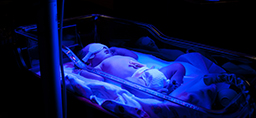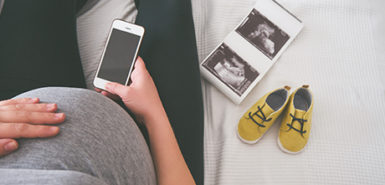
Toward the end of your pregnancy, a full night’s sleep can seem like a distant memory.
But quite frankly, I think those frequent bathroom breaks in the last trimester are designed to help you prepare for life when baby comes.
I find it strange that one of the first questions someone asks a new mom is this: “Is the baby sleeping through the night?”
We really shouldn’t ask a new mom this question. While most newborns sleep about 16 to 18 hours a day, they do this in small increments throughout a 24-hour period. (By the time an infant is 4 weeks old, he’s sleeping about 14 hours a day.)
Here are some facts we know about children and sleep:
- Solid food before bedtime doesn’t usually help a baby sleep longer. Just remember the recommendation from the American Academy of Pediatrics: You can start solids when the child is about 6 months old.
- You cannot force your baby to sleep. You can, however, create an environment that allows your baby to prepare for bed. Your baby shouldn’t be anywhere near TV or electronics—not even a smartphone—before bedtime. The best approach is to turn off the electronic devices about 30 minutes to an hour before bed. Even if you’re just rocking your baby to sleep, put away the smartphone and provide a purely quiet time for your little one to get some rest.
- A routine can help. Maybe you give baby a bath or an infant massage before bedtime. These low-key activities get them ready for bed. We know an overtired baby can also have a more difficult time falling asleep.
- The medical definition of “sleeping through the night” is five hours. Most adults don’t consider this sleeping through the night, but this is the definition. Babies will usually sleep about five hours a night by the time they’re 3 months old to 5 months old. Some babies are mixed up when it comes to day and night. If this is your baby, try keeping him more stimulated during the day with tummy time and playing, and then at night create a quieter environment that helps him learn bedtime is approaching.
- Sleep cycles are shorter, and lighter, for babies than for adults. Babies are more prone to light sleep, as opposed to deep sleep. Research is still being done in this area, but scientists suspect these shorter cycles help with blood flow and brain development. This light sleep is why it sometimes appears your baby is asleep, but then when you move him to bed he starts crying the minute you set him down. He just wasn’t in a deep sleep yet.
- From birth to 6 months old, babies usually wake up a few times or more each night. After that, from about 6 months to a year old, they typically wake up once or twice a night. From age 1 to 2 they usually awaken about once a night. This is on average, of course. You may find your baby sleeps more or less than this.
- A baby’s sleep habits are more determined by individual temperaments, as opposed to a parent’s nighttime abilities. It’s not your fault if your baby wakes up. If you have just fed your baby, see if he can self-soothe back to sleep. Sometimes a pacifier is an option.
 /a>
/a>
 /a>
/a>
 /a>
/a>